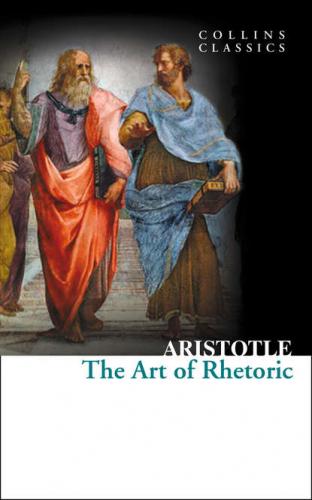Sweet ’tis when rescued to remember pain,
and
Even his griefs are a joy long after to one that remembers
All that he wrought and endured.
The reason of this is that it is pleasant even to be merely free from evil. The things it is pleasant to expect are those that when present are felt to afford us either great delight or great but not painful benefit. And in general, all the things that delight us when they are present also do so, as a rule, when we merely remember or expect them. Hence even being angry is pleasant – Homer said of wrath that
Sweeter it is by far than the honeycomb dripping with sweetness –
For no one grows angry with a person on whom there is no prospect of taking vengeance, and we feel comparatively little anger, or none at all, with those who are much our superiors in power. Some pleasant feeling is associated with most of our appetites we are enjoying either the memory of a past pleasure or the expectation of a future one, just as persons down with fever, during their attacks of thirst, enjoy remembering the drinks they have had and looking forward to having more. So also a lover enjoys talking or writing about his loved one, or doing any little thing connected with him; all these things recall him to memory and make him actually present to the eye of imagination. Indeed, it is always the first sign of love, that besides enjoying some one’s presence, we remember him when he is gone, and feel pain as well as pleasure, because he is there no longer. Similarly there is an element of pleasure even in mourning and lamentation for the departed. There is grief, indeed, at his loss, but pleasure in remembering him and as it were seeing him before us in his deeds and in his life. We can well believe the poet when he says
He spake, and in each man’s heart he awakened
the love of lament.
Revenge, too, is pleasant; it is pleasant to get anything that it is painful to fail to get, and angry people suffer extreme pain when they fail to get their revenge; but they enjoy the prospect of getting it. Victory also is pleasant, and not merely to ‘bad losers’, but to every one; the winner sees himself in the light of a champion, and everybody has a more or less keen appetite for being that. The pleasantness of victory implies of course that combative sports and intellectual contests are pleasant (since in these it often happens that some one wins) and also games like knuckle-bones, ball, dice, and draughts. And similarly with the serious sports; some of these become pleasant when one is accustomed to them; while others are pleasant from the first, like hunting with hounds, or indeed any kind of hunting. For where there is competition, there is victory. That is why forensic pleading and debating contests are pleasant to those who are accustomed to them and have the capacity for them. Honour and good repute are among the most pleasant things of all; they make a man see himself in the character of a fine fellow, especially when he is credited with it by people whom he thinks good judges. His neighbours are better judges than people at a distance; his associates and fellow-countrymen better than strangers; his contemporaries better than posterity; sensible persons better than foolish ones; a large number of people better than a small number: those of the former class, in each case, are the more likely to be good judges of him. Honour and credit bestowed by those whom you think much inferior to yourself – e.g. children or animals – you do not value: not for its own sake, anyhow: if you do value it, it is for some other reason. Friends belong to the class of pleasant things; it is pleasant to love – if you love wine, you certainly find it delightful: and it is pleasant to be loved, for this too makes a man see himself as the possessor of goodness, a thing that every being that has a feeling for it desires to possess: to be loved means to be valued for one’s own personal qualities. To be admired is also pleasant, simply because of the honour implied. Flattery and flatterers are pleasant: the flatterer is a man who, you believe, admires and likes To do the same thing often is pleasant, since, as we saw, anything habitual is pleasant. And to change is also pleasant: change means an approach to nature, whereas invariable repetition of anything causes the excessive prolongation of a settled condition: therefore, says the poet,
Конец ознакомительного фрагмента.
Текст предоставлен ООО «ЛитРес».
Прочитайте эту книгу целиком, купив полную легальную версию на ЛитРес.
Безопасно оплатить книгу можно банковской картой Visa, MasterCard, Maestro, со счета мобильного телефона, с платежного терминала, в салоне МТС или Связной, через PayPal, WebMoney, Яндекс.Деньги, QIWI Кошелек, бонусными картами или другим удобным Вам способом.
